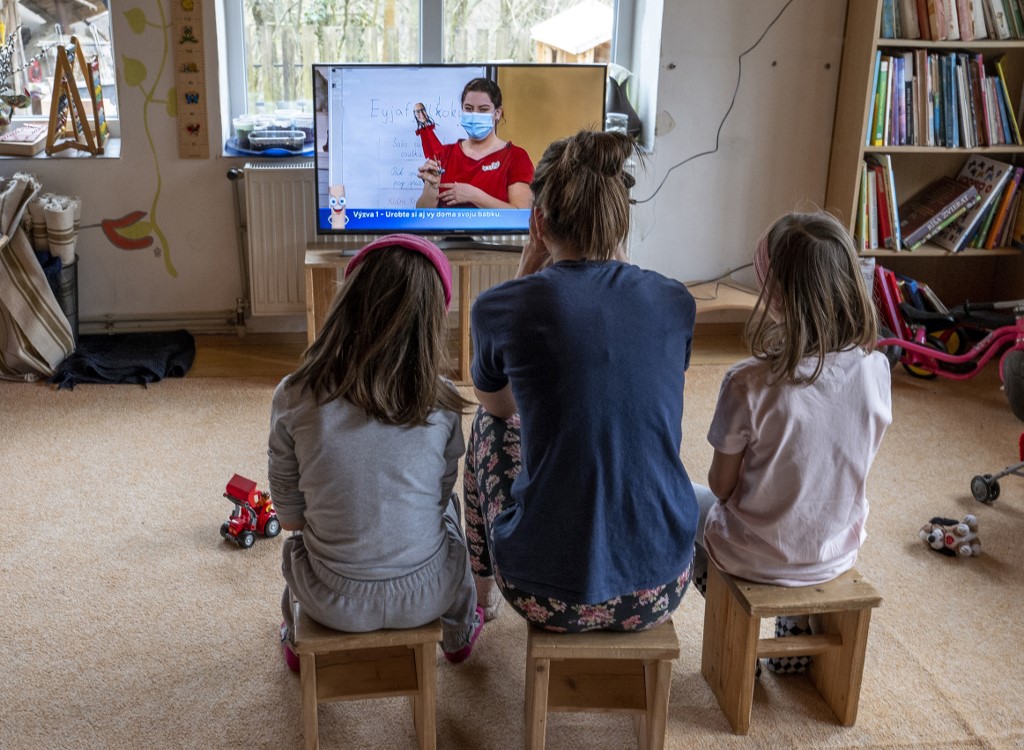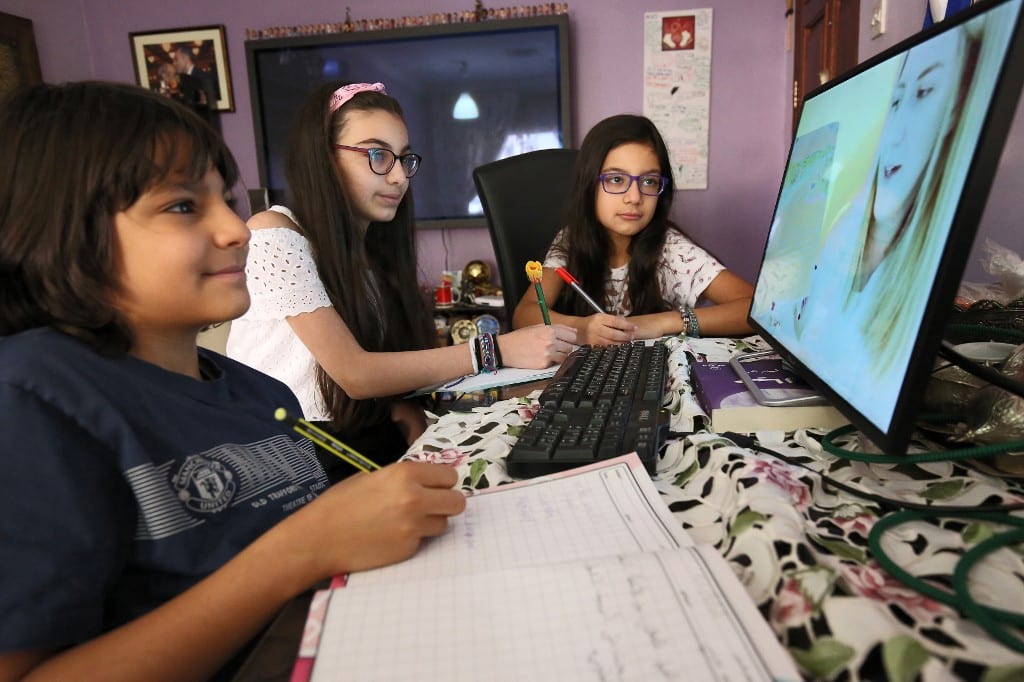To the backdrop of the current global pandemic, UNESCO has announced the largest immediate education disruption in recent history, and has launched a global coalition to accelerate the deployment of remote learning solutions. UNICEF has reported that 60% of Africans are not online, whereas only 4% of Europeans are disconnected due to the unequal access to digital technology tools
The President of International Committee of the Red Cross, Peter Maurer, has clarified that the fourth industrial revolution, which we are currently experiencing, has the potential to make inequities visible and less acceptable, hoping to support political actors to take the necessary decisions. Although many countries have launched eLearning strategies, special needs and other vulnerable students are the most affected in this learning crisis.

The OECD (Organization for Economic Co-operation and Development) and UNESCO have previously highlighted many challenges to homeschooling, which includes the lack of preparation on the parts of students, teachers, leadership and parents. Aside from requiring an enabling infrastructure and equal availability of digital tools as prerequisites, what are other underlying reasons for making learning so challenging now?
In the Arab region, governments have reacted differently to the country-wide school closures. This week UAE has launched distance learning with the in-person support of their Prime Minister and Dubai Ruler Sheikh Mohamad Bin Rashid Al Maktoum. Even with the preparation and decent infrastructure of the UAE, teachers, students and administration are still facing difficulties accommodating to this shift, although they claim to be working around the clock to provide quality education.
In Lebanon, more than 1.3M students are directly affected by this disruption. Although the Ministry of Education had asked for a complete school-system shutdown by February 29, it took them 15 days beyond the closure to recommend and provide alternative solutions. To better understand the challenges that have arisen given the situation, several teachers were interviewed, from schools in Tripoli, Beirut and Saida ranging across public, semi-private and top elite private schools. The interviews focused on how teachers are feeling and how they are coping to accommodate their learning modalities. Three words would describe the general mood: frustration, uncertainty and a lack of preparation.
Frustration, Uncertainty and a Lack of Preparation
Aside from their fear of the virus, teachers have been stressed due to their newly increased workload. Tens of platforms have suddenly appeared in front of them, demanding practice and tech-knowledge. Other than being required to transform their content digitally, teachers are now overwhelmed with having to choose the right tool based on their students’ access and needs. Many are demotivated due to low student engagement, one teacher clarifying that only 10% of her students are participating in her online classes, even with the availability of the infrastructure and tools. Parents are also expressing extreme irritation, as they have been suddenly thrust into the role of home-educators. The built frustration has even pushed parents to ask teachers to contact not them anymore in some cases. Unfortunately, the mounting miscommunication and lack of preparation are generating an intense resistant reaction to EdTech solutions, on part of parents and teachers.
This is not to mention the levels of uncertainty that educators are now facing. What will happen when the Coronavirus epidemic somehow ends? Are they going to have to reteach their material? What happens if one of the teachers or students was infected with the Coronavirus? Will the students be capable of continuing to learn if they are in direct connection to any cases of the virus at home? What about the methods of the assessment of the students during this time, how will they be graded and evaluated? Many educators have already brought these concerns to the relevant decision-makers, i.e. principals, coordinators, and supervisors, who are both lacking any kind of clarity about the situation, and in most cases refusing to communicate clearly with teachers, be it about how to handle low attendance, cancelling/postponing of examinations, or the rescheduling of the whole year.
This is a trickling effect of the Ministry of Education’s indecision, which has yet to manage expectations of all school stakeholders by providing different options or associated actions. And so, the consequence remains that until this moment, there remains a lack of a coherent emergency plan on part of any of school administration.
Other than the preparation on part of the educators, relevant decision-makers and students, the infrastructure was not accommodating; low internet speeds due to sudden overflowing traffic, absence of availability in digital tools and the student’s access to WIFI have become jarring barriers in the attempt of keeping this semester afloat.
Quick solutions to strengthen internet speed on part of the ministry of telecommunications have for the most part failed; this is because the Fiber Optics systems installation which allow for faster transfer of data in Lebanon’s main cities is much more available than those in rural areas, which are for the most part still relying on older copper wires. Thus, even if governments attempt to invest time and money into some solutions, the systemic inequality and weak infrastructure set-up have rendered them ineffective.


Problematic Educational Culture
All the above challenges were for the most part, expected. It is a similar situation in many countries around the world, albeit the ones in the Global North. The problem, extending further than issues of infrastructure and lack of training on part of educators, could be connected to a deeply-embedded educational culture that was prevailing long before COVID-19.
Was the educational culture one of learning, one of fear, or further still, one of inspection? Supervisors and Principles’ roles have often been described since the 1800s as those of inspection rather than mentorship or leadership. This pre-existing culture has long placed teachers on auto-pilot mode, frustrated from how current educational culture shapes them to be robotic knowledge-givers rather than creators or problem solvers. Teachers also require a space to learn and make mistakes in their fields, a space they are often forbidden to access. The relationship between the educators and the decision-makers in the hierarchy above them was often fraught; instead of a mentor and a guide, they instead became oppressed with the consistent watching eye of inspectors, checklist in hand, awaiting the slightest hiccup or change of course from the program.
Before COVID-19, were teachers partners in professional development? Were educators treated as technicians and passive educators or as intellectual leaders, change agents and active learners? Are we making professional development one-shot workshops or providing multiple continuous professional development opportunities through blending workshops, mentorships, coaching and follow ups? Did this professional development system, which is often perceived as workshops, kill teachers’ agency to be autonomous learners and depend on “experts” to come and teach them about how to use technology tools?
Before Covid-19, how were we promoting learning? Were we teaching the “how” or the “what”? If we would’ve spent more time, focusing our efforts on understanding the process of learning in itself, and curating it to the needs of all students, teachers and parents, perhaps the educational system would not have crumbled to the same degree when faced with a crisis of this magnitude.
Let’s Dream: If Not Now, When?
Researchers, social entrepreneurs, tech experts and philanthropists, have been implementing fragmented system reforms, some of which are replicating the same systemic problems. Micheal Fullen, a world-class reform researcher, has highlighted that the right system reform drivers start with changing the culture. Coronavirus has redefined the norms for students’ agency and self-directedness, teachers’ daily routines along the role of the supervisors. Now, shouldn’t we rethink how we can make a more impactful, sustainable and solid reform initiative? Can Coronavirus redesign our schools?






